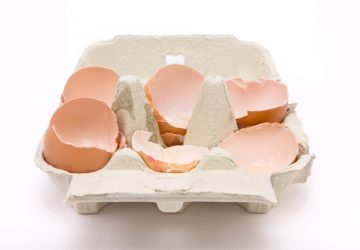In July the usual gang of activists unleashed a vicious series of attacks on biotech foods, agricultural products which are doing more and more to feed the world, especially poverty-stricken Third World countries. Leading the news in farm damage, of course, is French anti-biotech activist Jose Bove. Last seen being barred from the U.S., this Sunday Bove led more than 200 activists in destroying 18 acres of biotech corn. It is crimes like Bove’s that led Nobel Peace laureates Dr. Norman Borlaug and President Jimmy Carter to write last November that “agricultural science is increasingly under attack by groups and individuals who, for political rather than scientific reasons, are campaigning to limit advances, especially in new fields such as genetic modification (GM) through biotechnology.”
But Bove’s crusade wasn’t the only French farm attack in July. Earlier in the month, a French court ordered the far-left environmentalist group Greenpeace to take down an Internet map violating the privacy of farmers growing biotech crops. So what did Greenpeace do? Its activists illegally trespassed onto a biotech maize field in southern France and crushed crops in a giant ‘X’ pattern. We’re pretty sure that just about any of the world’s hundreds of millions of undernourished people would have loved to eat that maize, but hey, why let that get in the way of an illegal publicity stunt?
Finally, on July 4, long-time biotech-hater Jeremy Rifkin declared his independence from good sense by asserting in a Washington Post op-ed that one advance in biotechnology science (marker assisted selection, or MAS) has somehow negated the need for any more such science, especially gene splicing. In a Reason magazine response to the article, writer Ron Bailey grafted some much-needed scientific sense onto Rifkin’s argument:
Plant geneticists and breeders don’t agree [with Rifkin]. According to Alan McHughen, a plant biotechnologist at the University of California, Riverside, “The problem for Rifkin: MAS is not, as he suggests, an alternative to gene splicing (recombinant DNA or rDNA), but an adjunct. Both are powerful and useful tools that can be used together.”




